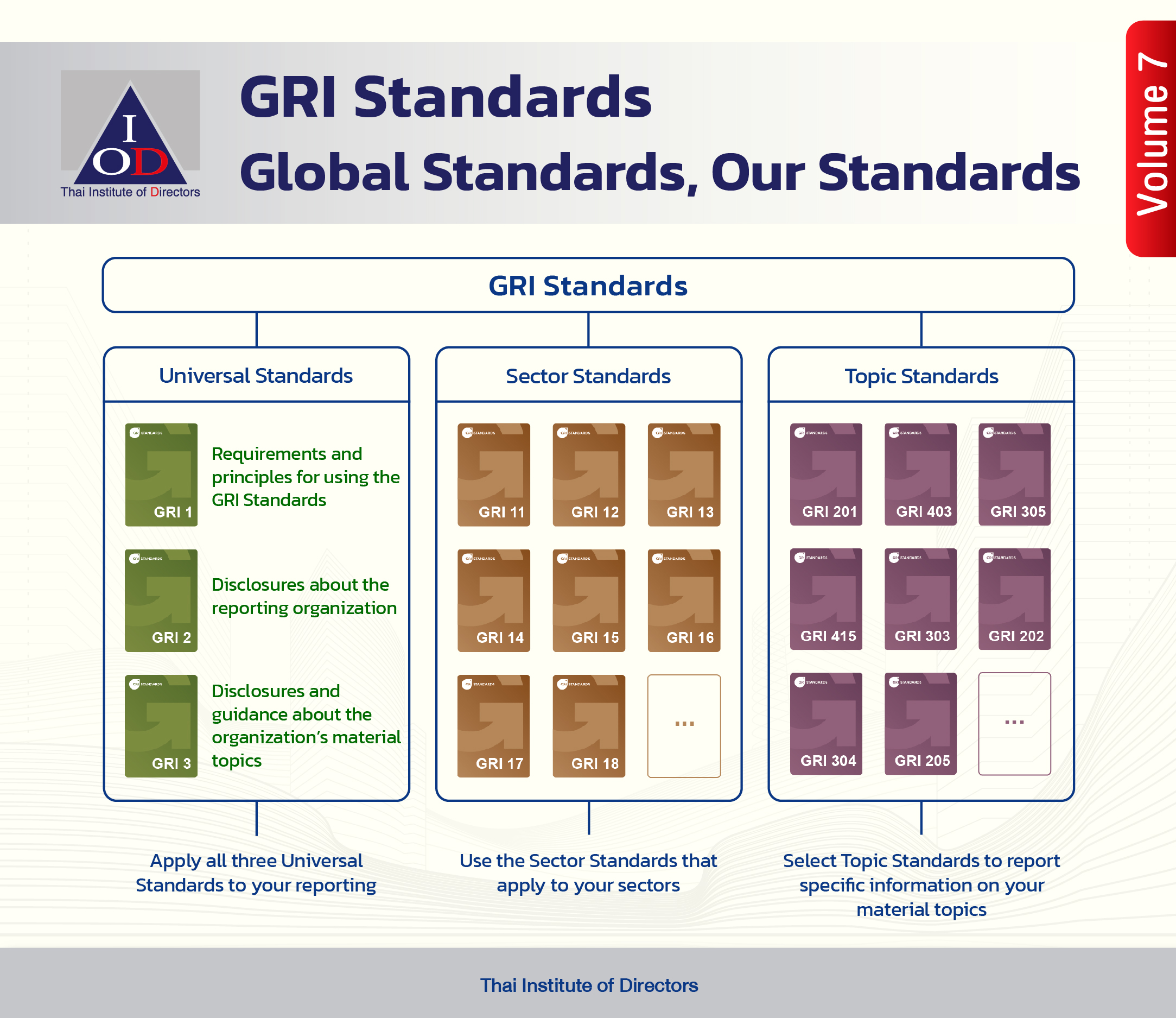GRI Standards - Global Standards, Our Standards
GRI Standards - Global Standards, Our Standards
The Global Reporting Initiative (GRI) is an independent organization established by the United Nations Environment Program (UNEP) in 1997(1). Its main function is to develop and promote the Sustainability Reporting Framework, which has gained popularity at the international level. The GRI Standards provide non-complex and easy-to-understand indicators suitable for all types and sizes of companies, and all industries. The focus is on communication with stakeholders, with separate reporting on financial and non-financial performance.
The first version of GRI Guidelines (G1) was developed in 2000 and has been continuously improved and updated since then. The latest content update is the GRI Guidelines 2021 (G4)(2), which was introduced in 2021 and became effective on January 1, 2023.
The G4 content is divided into three parts:
1. GRI Universal Standards, which are standards related to principles and data disclosure.
2. GRI Sector Standards, which are specific standards for certain sectors.
3. GRI Topic Standards, which are frameworks for information or components that need to be disclosed for each topic.

The Thai Institute of Directors (Thai IOD) supports Thai Listed Company to disclose information that is transparent and reliable to stakeholders according to the international reporting framework. Thai IOD believes that the GRI Standards are an important tool to help companies disclose sustainable information with a standard format to build trust and credibility with stakeholders. Companies can apply the GRI Guidelines to plan for sustainable business practices in two formats:
1. "In Accordance": This involves using the GRI Guidelines in accordance with the standardized framework provided by GRI. 2. "With Reference": This entails using the GRI Guidelines as a point of reference.
Using the GRI standards can bring benefits to a company in both internal and external dimensions. Internally, it can help align the company's vision and strategy with sustainable business operations, build investor confidence, and attract potential employees who are interested in joining the organization. From an external perspective, adopting these standards can lead to the creation of trust, respect, and a positive reputation for the company.
Based on the 2022 sustainability reporting survey by KPMG(3), it was found that among the top 100 highest revenue-generating companies in Thailand, 97 companies have engaged in sustainability reporting. This indicates that companies in Thailand place significant importance on sustainability reporting, as it serves as a means of communicating their economic, social, and environmental operations and reflects their long-term business identity to stakeholders. Historically, companies in Thailand have produced sustainability reports in diverse formats, even when they belong to the same industry, have similar market sizes, or operate in the same sector. Most of these reports focus on disclosing sustainability information based on the issues the company desires to communicate, without adhering to standardized formats. This approach sometimes leads to confusion and difficulty in understanding for investors and stakeholders, potentially impacting investment decisions. Moreover, these reports primarily communicate positive material issues, leaving out the holistic representation of sustainable business practices.
The GRI framework serves as a reporting tool that functions as a checklist, aiding companies in identifying both positive and negative sustainability aspects. It begins by defining material topics, which are key issues determined by the significant impacts a company has on its value chain. This is done through the principle of Double Materiality, which involves assessing outward impacts from external factors and inward impacts from internal factors. Through this process, the framework evaluates how a company's activities affect the environment and society, as well as how the company will be affected by environmental and social changes in the future.
The process of sustainability reporting should involve disclosing information about economic, social, environmental, and human rights aspects, both positive and negative. It should focus on producing high-quality disclosures and assessing ESG (Environmental, Social, and Governance) risks that reflect the actual operations of the company. This allows the company to set goals for improving activities that have negative impacts and developing activities that have positive impacts. This leads to a reduction in overall negative impacts on society and the environment. In the long term, the company can save costs and enhance operational efficiency by adopting sustainable practices.
Therefore, standardizing the process of sustainability reporting not only involves disclosing information that addresses the concerns of stakeholders but also helps companies operate in a sustainable and
concrete. If all companies collectively work towards reducing negative impacts and incrementally generating positive impacts, the cumulative effect will undoubtedly lead to significant improvements that contribute to alleviating the global turbulence(4) we face.
Reference Sources
1. GRI Framework Sustainable Development Report: Kulachada Ditthayabutr and Urusa Siriboonlue, National Productivity Institute: https://www.ftpi.or.th/wp-content/uploads/2022/03/GRI-Standards-2021.pdf
2. Time line of GRI History: Global Reporting Initiative: https://www.globalreporting.org/about-gri/mission-history
3. Big shifts, small steps: KPMG Survey of Sustainability Reporting 2022, KPMG International, September 2022 (p.14): https://assets.kpmg.com/content/dam/kpmg/xx/pdf/2022/10/ssr-executive-summary-small-steps-big-shifts.pdf
- Global warming has led to continuous impacts: Department of Environmental Quality Promotion: https://greendigitallibrary.deqp.go.th/news/detail/631
Kerati Kongsaman
Analyst
Thai Institute of Directors (Thai IOD)
|











